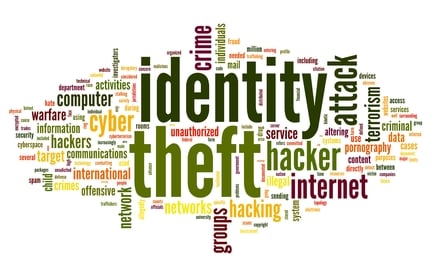 When you sign up for something online, whether it's a social media site, shopping platform or anything else, do you stop to consider your privacy rights? People often skip over reading the “required” reading before clicking the “sign up” button or the “buy now” button, but it would increase your identity protection if you were to read that information before sending certain companies your private information.
When you sign up for something online, whether it's a social media site, shopping platform or anything else, do you stop to consider your privacy rights? People often skip over reading the “required” reading before clicking the “sign up” button or the “buy now” button, but it would increase your identity protection if you were to read that information before sending certain companies your private information.
When you think of identity protection, you probably think of protecting your social security number, driver’s license number and bank account information. However, people can still steal your identity by piecing together other information such as your address, names of family members, and even cookies from your computer.
Ways People Can Get Your Information
Criminals can get information from you in many ways, from sending you a link to impersonating someone you trust and getting information from your social network accounts. Often, a criminal will forward a single link in an email, hoping that people will click through. Criminals will also send out emails that look as they are from trusted establishments, such as your bank — a tactic called phishing. Once you click through, you end up on a site that looks like your bank’s site, Paypal or another trusted site. Once you put your information into the site, the criminal has you.
Most Trusted Sites
Knowing that a site is trusted is great as long as you know that you are on that site. If you click through a fraudulent email, you may think you are on the trusted site. Always type in the site name in your browser instead of clicking through an email. This is especially true for banks and Paypal or other online banking sites.
Research firm Ponemon completed a survey in early 2013 that named some of the most trusted sites. Surprisingly, Google and Apple fell out of the top 20 most trusted sites. While most people do not trust most Internet companies, the survey found that Firefox was the most trusted site in 2012. Also missing from the top 20 this year were Best Buy, Facebook, Yahoo, Dell, and AOL. The top five most trusted companies (in order) were American Express, Hewlett Packard, Amazon, IBM and the U.S. Postal Service.
Invasion of Privacy
The Ponemon survey also stated that identity theft was the biggest threat to privacy, as well as data breaches and government surveillance. More than 50 percent of those surveyed by Ponemon said they received a data breach notice in the past two years. Of those, 77 percent said their trust in that company’s identity protection ability decreased.
Becoming More Trustworthy Online
If you have an online business, you can show people you are trustworthy by being transparent. Have your privacy policy easily available to customers. Be sure your contact information is on your website. If you do use a contact form for your own identity protection, avoid cookie-cutter formatting. Add something to the page, such as a short paragraph about contacting you, your picture – a real picture, not one of a cartoon or of your pet, or a short MP3 greeting your customers.
Make sure your privacy statement states that you do not give out personal information to third parties without legal intervention and that you do not sell your mailing lists. As soon as someone finds out your business gives out personal information, you can kiss your customer base goodbye.
Also, be sure you that you are available to your customers if you post your phone number. Don’t put it out there, then never answer the phone. Customers will not purchase your service or merchandise if they don’t believe they will get excellent customer service – and that includes being able to contact you.


